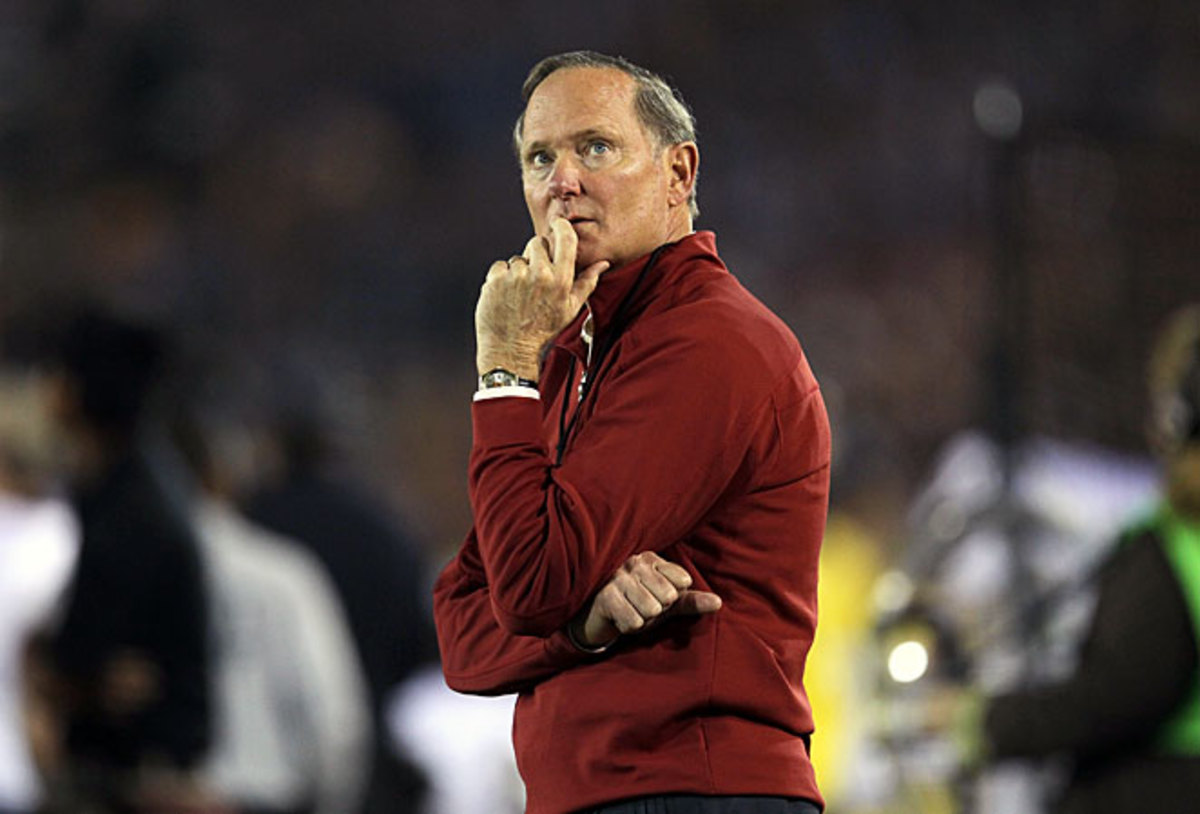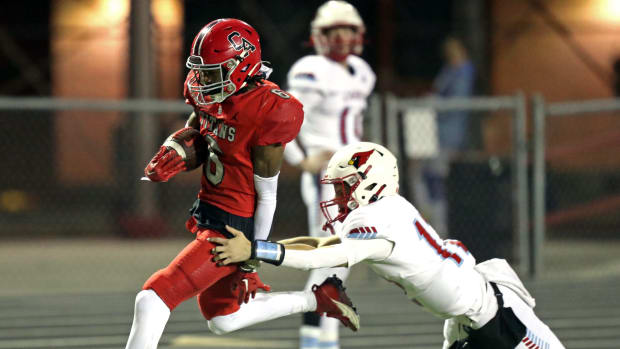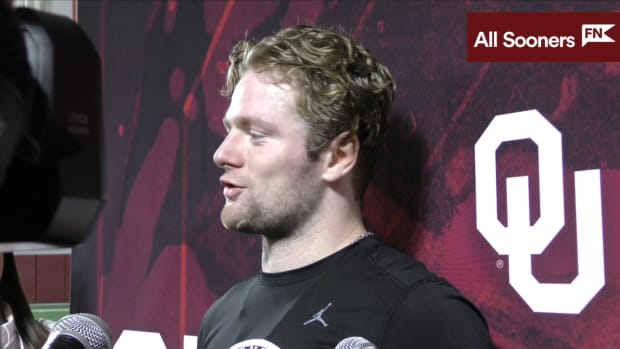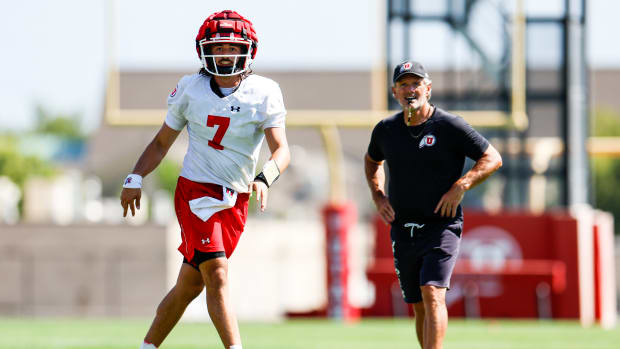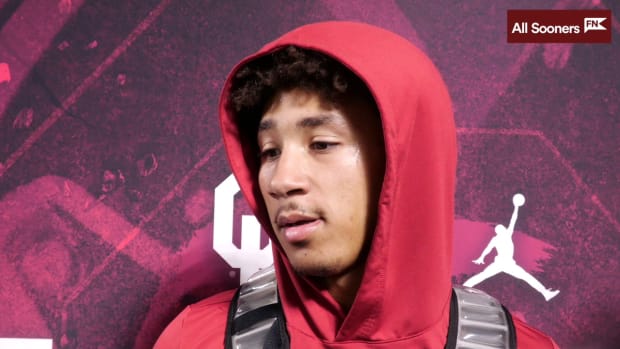USC's Haden: Ed O'Bannon case could cause seismic NCAA change
LOS ANGELES -- NCAA leaders will converge on Atlanta this weekend for the Final Four, the organization's annual celebratory event of not only basketball, but of college athletics as a whole. Mark Emmert and his brass aren't likely to let the hovering cloud of an industry-threatening lawsuit dampen the party, but at least one prominent athletic official thinks it's time to start bracing for the worst.
USC athletic director Pat Haden says he's concerned the NCAA may lose the pending Ed O'Bannon antitrust suit regarding the commercialization of college athletes. He is encouraging conference and national colleagues to start discussing contingency plans.
"We ought to be kept abreast of it at all times, and we ought to prepare for it in case we lose," said Haden, a former practicing attorney and businessman who became an athletic director in 2010. "I haven't followed the case closely, but what I read from legal scholars, it's not a slam dunk for the NCAA."
The case, filed by former UCLA basketball star O'Bannon in 2009 and eventually expanded to include high-profile co-plaintiffs like Oscar Robertson and Bill Russell, initially focused solely on the use of former athletes' likeness in products such as EA Sports' NCAA video games, for which the individuals are not compensated. (EA Sports is a co-defendant.) However, in a motion for class certification filed last August, the plaintiffs contended that both current and former athletes should be included in the case and argued they are entitled to 50 percent of revenue generated by NCAA and conference television contracts.
In other words, it has become a pay-for-play case.
"The context of the lawsuit has changed. What do we do if we lost?" Haden said of the NCAA's side. "All of a sudden your television revenue -- let's say it's $20 million a year [for a school]. Now if they win, it's $10 million a year. How do you make your 21 sports work on half the revenue?"
In January, the judge in the case denied an NCAA motion to strike the plaintiffs from pursuing their class-action claim, with the NCAA arguing that the plaintiffs had radically changed the case midstream. A hearing before Judge Claudia Wilken of the U.S. District Court in Northern California is scheduled for June 20. The trial would not take place until July 2014.
"This is the most threatening lawsuit the NCAA has ever faced," said SI.com legal expert Michael McCann, a University of New Hampshire sports law professor. "If O'Bannon prevails, it would radically change the economics of college sports. More specifically, it would, like Pat Haden said, require schools to operate a sports program with substantially less money."
Despite the potentially seismic implications, most college athletic officials have publicly downplayed the possibility of an unfavorable outcome to this point. The NCAA, as would be expected of a defendant in a lawsuit, has remained confident that it will ultimately prevail. "This case has always been wrong -- wrong on the facts and wrong on the law," NCAA executive vice president and chief legal officer Donald Remy said in a statement last month. "We look forward to its eventual resolution in the courts." And for the most part, that mindset has trickled down to college administrators.
"There's conversation [about the case], but it's in the courts. We have no control over it," Texas AD DeLoss Dodds said recently. "I don't hear people saying, 'Here's what were going to do if it happens.' ... I've got more immediate things to worry about."
In recent court filings brought on behalf of the NCAA in its motion against class certification, several athletic administrators (including Dodds) laid out various consequences if the plaintiffs' "50-50" proposition were to become reality. Most notably, as Andy Staples reported, Big Ten commissioner Jim Delany suggested his conference members might opt for a Division III model in which no athletic scholarships would be awarded. Such doomsday scenarios are considered wildly unrealistic, but a victory for the plaintiffs or even a pre-trial settlement would almost certainly require fundamental changes for athletic departments.
"What it means is coaches' salaries will go down, as one outcome," said McCann. "Some sports teams will be cut is another outcome. Schools still have to comply with Title IX. Schools have to become more strategic."
McCann believes the parties will eventually settle due to the extent of potential damages for the NCAA, though it's impossible to predict what scope that would entail. If the case does go to trial, realistically it will be many years before there's a resolution, as whichever side loses is nearly certain to appeal.
So athletic officials do have time to start devising contingency plans, if any of them share Haden's sense of urgency.
"What I'm reading is that we have a real chance of losing," Haden said. "It will work its way through the system, and there we go."
